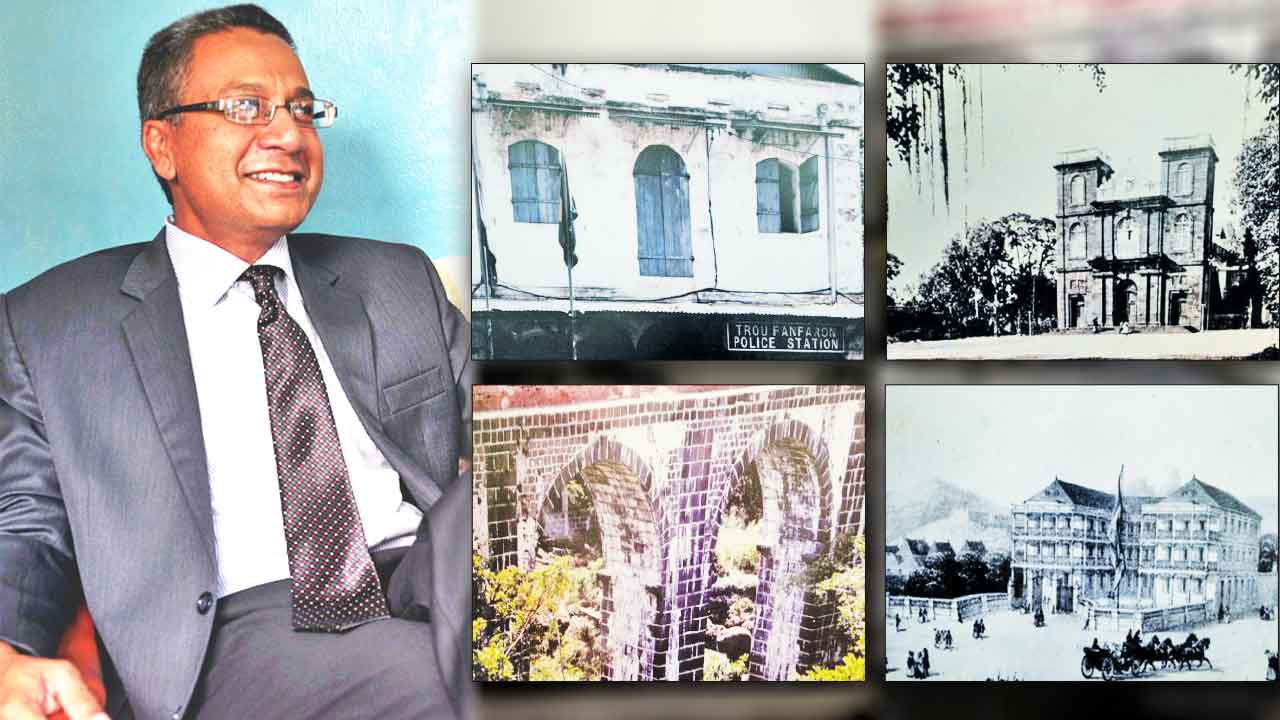
Commemoration of the Abolition of Slavery
Mauritius marked the Abolition of Slavery Day on Wednesday 1st February in remembrance of those former slaves who came from Africa, Madagascar and elsewhere. Even if the origin of the descendants of former slaves is still not clearly known, their pain and sufferings are well illustrated in paintings and the writings of authors who visited the island.
For more than two decades, the 1st February is chosen to mark the event. We called upon Dr Jimmy Harmon, member of the 1st February Diocesan Committee of the Catholic Church, an independent researcher on Creole issues and Country Expert for Mauritius and Seychelles in the Vitality Democracy Project of the University of Gothenbrug, to tell us whether the celebrations are relevant to-day and whether it helps to give a fair image of the descendants of former slaves.
The real meaning of the celebrations is all about allowing people to preserve memories of their past. It is in a sense a healing process, says Dr Harmon. These celebrations acknowledge the resilience of the slaves and the maroons. At the same time, it’s not just celebrating the past, but it’s about measuring the progress made by the Creoles who represent a diverse group but especially those whose ancestors within that group were victims of slavery, he explains.
We asked the researcher to what extent have descendants of slaves known a vertical mobility in contemporary society and what role would this commemoration play in modern days. To this, he answers that there have been some forms of vertical mobility. “It is certainly not just remembering the bad days and complaining about the past. We must reckon that since a couple of years now, those celebrations lay much emphasis on progress, achievements, opportunities and the capacity to bounce back. These celebrations have become the centrepiece of a form of critical consciousness of Creoles. I am myself involved with my friends of the 1st February Diocesan Committee at community grass root level where we have developed over the years a socio-political educative tool that engages people in questioning the nature of their historical and social situation.”
It is in this context that for this year, the committee has chosen to focus the 1st February celebration around the forthcoming Kreol Convention scheduled for October 2017. The chosen theme for the Abolition of Slavery Day is: “An avan pou Konvansion Kreol”. This is the second convention after the first edition in 2012 which was about education. This 2nd Convention will be about Kreol entrepreneurship.
“We consider the Abolition of Slavery Day is the opportune time to reflect on the sense of leadership of the maroon slaves from which the Kreol entrepeneurs can draw inspiration,” says Dr Harmon.

Social integration
What should be done to prompt descendants of slaves to participate in national policies and be an integral part of our society? “The Truth and Justice Commission (TJC) report, released in 2009, addresses this issue at length. Various international reports and studies regularly point out the marginalisation of the Creoles and their exclusion from the spheres of decision-making. There are several reasons that they seem not to be an integral part of our society while paradoxically they are the biggest minority group,” says Dr Harmon.
At the same time, it’s not just celebrating the past, but it’s about measuring the progress made by the Creoles who represent a diverse group but especially those whose ancestors within that group were victims of slavery, he explains.
Going into details, he explains that it’s not an easy thing as Creoles face adverse situations in everyday life. But it is up to the Creoles to assert themselves and set their feet down firmly, adds the researcher. “This is what I have realised at one point when I was Director of Nelson Mandela. I realised gradually that it is not just a question of defending a cause but to make oneself respected. Then you become an important element which nobody can continue to disregard. It is then that you can participate in national policies and shape things.”
What should be done to change the stereotype society sticks to descendants of slaves? “I see you put it bluntly. Unfortunately this stereoptype persists. I just recently wrote an article to condemn an afternoon radio programme which consolidates this long held stereoptype under the veneer of sympathetic poor quality jokes and benign comments by the presenter. Nobody talked about it until I wrote this paper. Even the Creoles and descendants of slaves took it lightly. Just after my article, I got some people calling me and telling that I am right. So, it’s a never ending struggle. It seems that for many Creoles are just “funny and entertaining models.” We have to showcase all the Creoles who are doing well while not closing our eyes on some dark realities!”
 J'aime
J'aime














